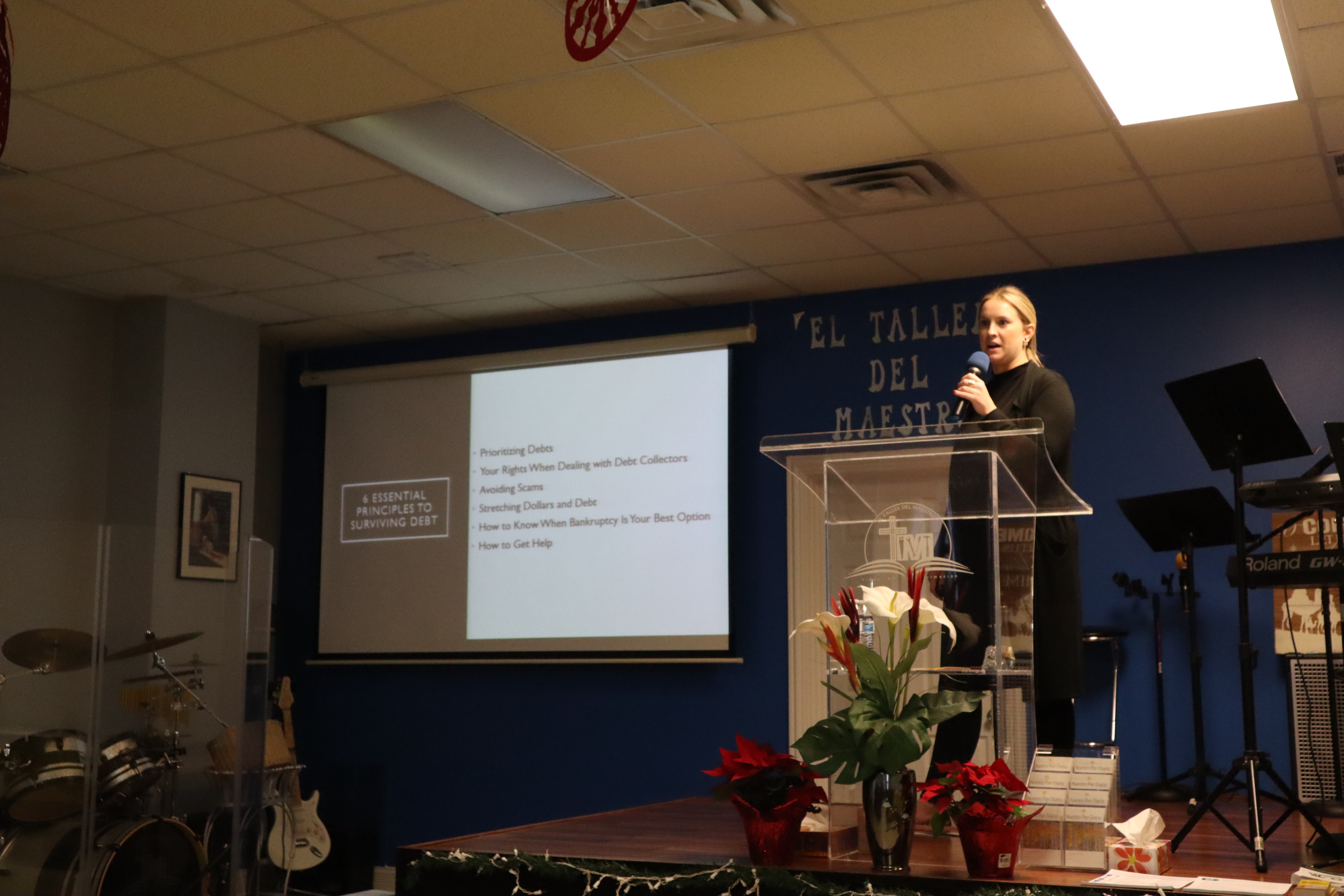 The Croak Community Legal Clinic offers students the experience of working with real clients on real legal issues. (Image courtesy of Marissa De La Cerda)
The Croak Community Legal Clinic offers students the experience of working with real clients on real legal issues. (Image courtesy of Marissa De La Cerda)DePaul's College of Law launched the Croak Community Legal Clinic in fall 2019. Named after the Rev. Thomas M. Croak, C.M., the clinic is a continuation of Croak Community Legal Services, which provided free legal advice to DePaul students on matters such as landlord-tenant disputes and minor criminal offenses.
Though now housed in the College of Law, the clinic still fulfills its original mission of serving the entire DePaul community. What distinguishes the Croak Legal Clinic from Croak Legal Services is that it hands the reigns to DePaul law students, serving as an experiential learning opportunity geared towards community organizing and empowerment.
“This clinic enables students to experience community lawyering, not just representation of individuals," says Julie Lawton, associate dean for experiential learning.
The two-semester clinic highlights different areas of law each term. Last autumn, students focused on civil legal services, such as family law, landlord-tenant law and consumer law.
“Because the idea was centered around 'know your rights' presentations, students gained information about how to organize different groups of people," says Sarah Baum, an adjunct instructor in the clinic and associate director of academic advising for the college. “They learned presentation skills, and how to find an audience and put together a presentation that audience could understand."
For their first assignment, clinic students focused on landlord-tenant law and offered a tenants' rights training to DePaul students. The workshop catered specifically to students living in dorms who were beginning to search for off-campus housing.
The second presentation was a self-represented litigant divorce clinic. Clinic students assisted clients in preparing paperwork and explaining how to file documents.
“We aimed for people who had 'straightforward' divorce cases but couldn't afford to or had trouble hiring a legal representative and would end up representing themselves," Baum says.
The final workshop focused on debt and had a primarily Spanish-speaking audience. One clinic students served as an interpreter, allowing clinic students to effectively provide access to resources on how to cope with debt, despite a language barrier.
Clinic students also assisted low-income individuals through voluntary legal representation on platforms such as the American Bar Association's Free Legal Answers. Through this platform, individuals ask attorneys legal questions, and clinic students would research the legal issues and draft answers to the questions.
“This allowed students to bridge the access to justice gap by assisting individuals in need of legal advice," Baum says. “They also were able to practice legal skills, particularly the art of conveying complicated concepts in a manner the client can understand."
For third-year Caroline Ruwe, the biggest takeaway was seeing how their work helped the community.
“After each session, participants from the community expressed how grateful they were for our work," she says. “It made the experience that much more special, because we could see the impact we made."
With the spring semester now underway, students are turning their attention to issues of criminal justice, including expunging criminal records and knowing your rights during encounters with law enforcement. They hope to help prevent escalation and reduce the risk of civilian harm.
The Croak Community Legal Clinic not only offers students the experience of working with real clients on real legal issues, but it also gives them the experience of helping empower a community.
“Often lawyers offer justice after a client suffers a harm," Lawton says. “But this clinic aims to offer proactive justice."
Learn more about the clinic on
the College of Law website.